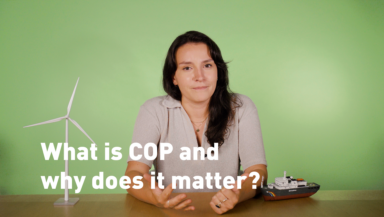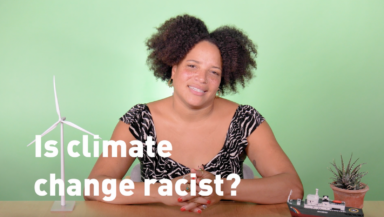Four young activists are sitting in Greenpeace UK’s warehouse in London, bundled up with tea and blankets. They’ve never met before, but they’re already friends.
Edwin, Maria, Farzana and Jakapita are part of the global climate strike movement’s MAPA group – representing the world’s “Most Affected People and Areas”. Hailing from Uganda, Mexico, Namibia and Bangladesh, their homes are thousands of miles apart – but they’re all living on the front lines of the climate crisis.
On Monday, they will sail up the River Clyde towards the COP26 conference centre in Glasgow, to bring their powerful message to world leaders. They just have time to tell their stories before they get fitted for warm clothes to wear on the Greenpeace ship, the Rainbow Warrior.
Navigating borders, Covid-19 rule and vaccinations – to meet old friends, for the first time

Maria Reyes from Mexico.
Fridays For Future climate activist © Marie Jacquemin / Greenpeace
It’s incredible that they even made it here at all, given the forces conspiring to exclude them.
One of their group – Bernard Kato Ewekia, from Tuvalu – hasn’t even arrived yet. He may be somewhere between Australia and Milan. They feel for their friend, whom they call by his nickname, Kato.
Despite their clear familiarity with each other, honed through two years of online collaboration, this is the first time these four young people from different areas of the world have ever been able to meet in person.
Each has a different story about their journey. They all had to tangle with visa denial and delays, and inability to access Covid vaccines acceptable to the UK government.







